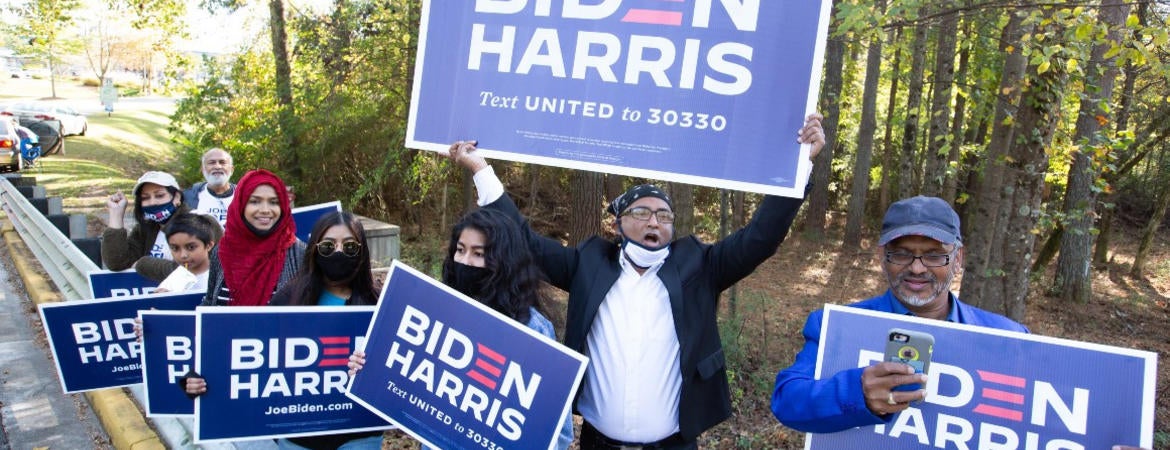Center for Social Innovation

There's an important, new electorate up for grabs. But the candidates need to do a better job catering to these voters
The AAPI community makes up just 3-4.5 percent of the population in Georgia, depending on which data you use, but it’s one of the fastest-growingdemographic groups in the state (and the fastest-growing group in the United States more broadly). AAPI residents are also Georgia’s fastest-growing group of voters. According to Tom Bonier, CEO of the Democratic firm TargetSmart, AAPI total turnout in Georgia increased by 91 percent from 2016 to 2020, a leap that proved decisive for Joe Biden. This year, some 30,000 Georgia AAPI voters cast a ballot for the first time ever, exit polls showed AAPI voters preferred Biden to Trump by 2-to-1, and Biden carried the state by just under 13,000 votes.
But Biden’s strong showing this year doesn’t mean AAPI voters are sure to lean Democratic. Because AAPI voters are new entrants into politics, and have historically been neglected by both political parties, this increasingly crucial community’s support and influence is up for grabs. And the key to the Georgia Senate runoff might just be smart outreach to them.
AAPI voters, given their diversity of income, age, generation, history and connection to the American experience across 50 ethnicities and over 100 languages, are by no means a solid single bloc. But they are united on one key factor: They want political parties and advocates to cater to them directly and not take them for granted. According to AAPI Data, just 30 percent of Asian American voters surveyed nationally in September said they had had at least some contact from the Democratic Party in the past year. Only 24 percent said they had had contact from the Republican Party. And when these voters do hear from the parties and politicians, the messages often aren’t targeted to them: Campaigns have been known to run English language campaign material through Google translate and think that’s enough.
The recent bump in AAPI voter turnout was fueled not by party or campaign outreach but mostly by civic and grassroots organizations who have experience with consistent, timely messaging to communities of color, non-traditional voters and new Georgians. The candidates vying for attention right now have a lot to learn from these groups.